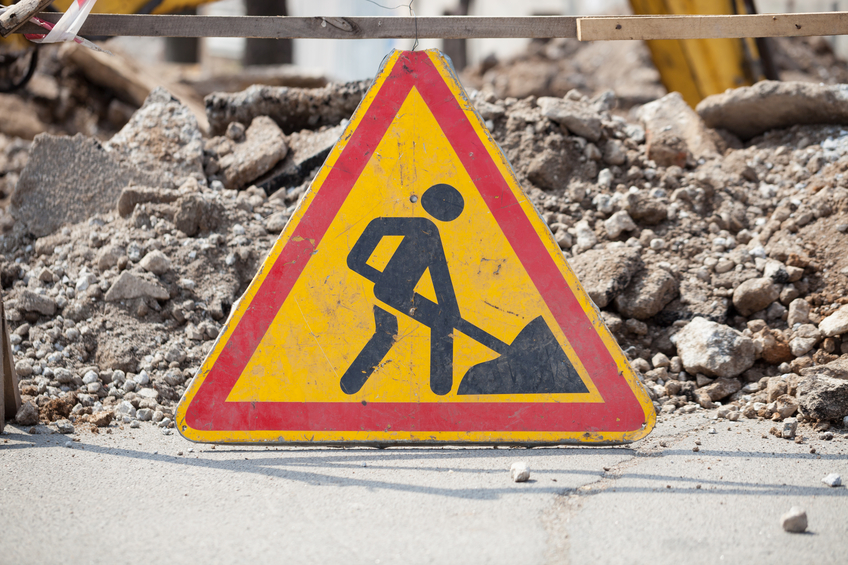New York Industrial and Ethics 18 PDH Discount Package 2
Courses in this Package
Requirements for Field-Constructed Tanks and Airport Hydrant Systems (D04-005)
Introduction to Radiation (Y03-004)
Airport Snow and Ice Control Equipment (D03-006)
Radiation Protection (D07-001)
Engineering Ethics for New York Professional Engineers (NY1-001)

This online engineering PDH course provides information on underground storage tanks (UTSs), in particular, field-constructed tanks (FCTs) and airport hydrant systems (AHSs) used for storing and maintaining various types of substances.
Underground storage tanks form a crucial part of our country’s fueling infrastructure. It is important for USTs to be constructed, maintained, and operated in a manner such that petroleum and other regulated substances are stored safely.
The operation and design of Field-constructed tanks (FCTs) and airport hydrant systems (AHSs) is different from conventional UST systems. Consequently, the U.S. Environmental Protection Agency (EPA) has introduced additional requirements and regulations to help prevent any potential issues which might arise from these systems. Leaks of hazardous substances and releases contaminate soil and ground water supplies, threatening both human health and the environment. Therefore, it is necessary to follow the established regulations, proper installation and maintenance requirements to help prevent and detect harmful releases from UST systems.
This 4 PDH online course is applicable to industrial, environmental, and civil engineers as well as others who are interested in learning more about Field-Constructed Tanks, Airport Hydrant Systems and their associated regulations.
This PE continuing education course is intended to provide you with the following specific knowledge and skills:
- Familiarizing with the basics of UST systems
- Learning about the regulations on FCTs and AHSs
- Learning about the different components that comprise each system
- Understanding the requirements for installing and maintaining FCTs and AHSs
- Understanding the key duties and responsibilities of a system owner
- Knowing the release prevention requirements and safety procedures
In this professional engineering CEU course, you need to review the course document titled, “Requirements for Field-Constructed Tanks and Airport Hydrant Systems”, which is based on the EPA document “Requirements for Field-Constructed Tanks and Airport Hydrant Systems”, reference EPA 510-K-17-002, dated October 2017.
Upon successful completion of the quiz, print your Certificate of Completion instantly. (Note: if you are paying by check or money order, you will be able to print it after we receive your payment.) For your convenience, we will also email it to you. Please note that you can log in to your account at any time to access and print your Certificate of Completion.

This online engineering PDH course provides an overview of the types of radiation, the health effects due to exposure and the way it is regulated.
Radiation has always been present and is all around us. Life has evolved in a world containing significant levels of ionizing radiation. We are also exposed to man-made radiation from sources such as medical treatments and activities involving radioactive material.
The health effects of radiation are well understood. Since the early 20th century, radiation’s effects have been studied in depth, in both the laboratory and among human populations. Because of the known health risks of radiation, it must be carefully used and strictly controlled. A balance must be struck between radiation’s societal benefits and the risks that radiation poses to people, health and the environment.
The Canadian Nuclear Safety Commission (CNSC) regulates the use of nuclear energy and materials to protect the health, safety and security of Canadians and the environment; and to implement Canada's international commitments on the peaceful use of nuclear energy. It also sets dose limits to prevent workers and the public from excessive radiation exposure.
This 3 PDH online course is applicable to safety engineers and professionals who are interested in learning more about nuclear safety.
This PE continuing education course is intended to provide you with the following specific knowledge and skills:
- Understanding the definitions of atoms, isotopes and radioisotopes
- Familiarizing with the types of radiation: non-ionizing and ionizing radiation
- Knowing the natural and man-made sources of ionizing radiation
- Understanding the health effects of radiation exposure and how it causes cancer
- Familiarizing with the epidemiological evidence of the effect of the radiation exposure
- Identifying the radiation dose limits and the typical radiation doses produced by natural and man-made sources
- Learning the types of radiation doses: absorbed, equivalent and effective dose
- Familiarizing with the rules regulating radiation
Upon successful completion of the quiz, print your Certificate of Completion instantly. (Note: if you are paying by check or money order, you will be able to print it after we receive your payment.) For your convenience, we will also email it to you. Please note that you can log in to your account at any time to access and print your Certificate of Completion.

This online engineering PDH course provides guidance about the selection process for snow removal and ice control equipment.
The selection process involves three components: identifying the type of equipment for a specific task, determining the number of such equipment, and using the recommended equipment specification to better ensure that the equipment performs the required task.
Airport operators should maintain runways and taxiways if possible, to a “no worse than wet” condition during winter storms. To meet this challenge, the purchase of snow and ice control equipment will not only require significant financial commitments, but also require careful planning and a fundamental understanding of snow and removal equipment.
This 3 PDH online course is intended for industrial, mechanical and electrical engineers, as well as other technical personnel interested in learning more about the equipment used to control snow and ice at airports.
This PE continuing education course is intended to provide you with the following specific knowledge and skills:
- Understanding how snow and ice control equipment are classified to the specific task(s) that the equipment is designed to perform
- Familiarizing with the selection process for various snow removal and ice control equipment
- Learning about the different types of snow removal and ice control equipment
- Familiarizing with the operational standards and compliance testing process
Upon successful completion of the quiz, print your Certificate of Completion instantly. (Note: if you are paying by check or money order, you will be able to print it after we receive your payment.) For your convenience, we will also email it to you. Please note that you can log in to your account at any time to access and print your Certificate of Completion.

This online engineering PDH course presents the regulations, policies and procedures for the safe use and handling of radioactive materials and radiation generating devices. It describes the effects of radiation and how to minimize the dangers present in a radiation filled environment.
Nuclear chemicals are present in many modern facilities. It is often harnessed as a cleaner source of energy than fossil fuels. However, the energy stored in these volatile chemicals may lead to many dangers. Consequently, it is very important to strictly regulate how to handle these chemicals in order to protect employees working in hazardous environments.
This 7 PDH online course is applicable to nuclear, chemical, and safety engineers and other technical professionals who are interested in gaining a better understanding about the requirements of protecting workers from radioactive materials.
This PE continuing education course is intended to provide you with the following specific knowledge and skills:
- Understanding the properties of radioactive substances
- Familiarizing with the different licenses required to work with radiation
- Learning how to properly handle radioactive materials
- Learning how to transport radioactive materials
- Learning how to handle radioactive waste
Upon successful completion of the quiz, print your Certificate of Completion instantly. (Note: if you are paying by check or money order, you will be able to print it after we receive your payment.) For your convenience, we will also email it to you. Please note that you can log in to your account at any time to access and print your Certificate of Completion.

This online engineering PDH course presents the laws and rules of ethics and professional responsibility governing the practice of engineering in the State of New York. Excerpts from Parts 17 and 29 of the Rules of Board of Regents, which relate to the laws and rules of profession conduct are presented in this course.
Engineering ethics is (1) the study of moral issues and decisions confronting individuals and organizations involved in engineering and (2) the study of related questions about moral conduct, character, ideals and relationships of peoples and organizations involved in technological development (Martin and Schinzinger, Ethics in Engineering).
Since engineers are faced with frequent moral and ethical dilemmas while practicing their engineering profession, this course will provide you with moral and ethical guidance in your decision making process. Most importantly, it will provide you with insight on how to conduct, respect and protect your engineering practice with the utmost professionalism.
This 1 PDH online course is applicable to Professional Engineers licensed in the State of New York and who are required to demonstrate continuing professional competency in engineering ethics as a condition of their license renewal. For each renewal period, every licensee must complete thirty six (36) professional development hours, at least one (1) of which must be relative to the principals of professional responsibility, conduct and ethics.
This PE continuing education engineering course is intended to provide you with the following specific knowledge and skills:
- Overview of the laws and rules regulating the practice of engineering in the State of New York Understanding the roles of the New York Board and its disciplinary authority
- Learning about engineering ethics and the rules and rules of professional conduct and responsibility
- Review of ethical and disciplinary case studies depicting various violations and their corresponding penalties
In this professional engineering CEU course, you need to review the course document titled “Engineering Ethics for New York Professional Engineers”.
Once you complete your course review, you need to take a multiple-choice quiz consisting of ten (10) questions to earn 1 PDH credit. The quiz will be based on the entire course document.
Upon successful completion of the quiz, print your Certificate of Completion instantly. (Note: if you are paying by check or money order, you will be able to print it after we receive your payment.) For your convenience, we will also email it to you. Please note that you can log in to your account at any time to access and print your Certificate of Completion.